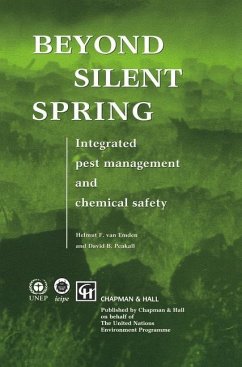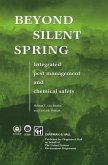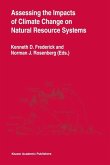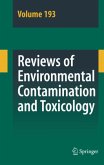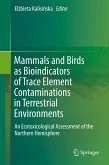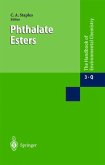More than 32 years ago, Rachel Carson's Silent Spring appeared upon the scene as a landmark of literary achievement which contributed greatly to the foundation of the modern environmental movement. Rachel Carson had designed Silent Spring to shock the public into action against the misuse of chemical pesticides. More than anything else, the book also served as an ecological primer, demonstrating the interrelationship of all things and the dependence of each on a healthy environment for survival. Today, Silent Spring is generally credited with providing impetus to the whole range of anti-pollution laws that came into force in the 1970s. It is also perceived as having played a crucial role in the eventual banning of DDT as well as in the restricted use or total phasing out of the most notorious hard pesticides identified in the book. The vigorous growth of the chemical industry geared to the production of newer and ever more powerful pesticides can be traced to the introduc tion ofthe organochlorine insecticide DDT in the 1940s. These pesticides were meant not only to control insects but also animal pests, disease and weeds. Initially their development was based on the belief that they would provide a definitive solution to pest and vector problems.
Hinweis: Dieser Artikel kann nur an eine deutsche Lieferadresse ausgeliefert werden.
Hinweis: Dieser Artikel kann nur an eine deutsche Lieferadresse ausgeliefert werden.
'The book is a splendid international overview of a problem of growing importance.' -- International Journal of Environmental Statics
'Beyond Silent Spring gives an excellent review of IPM practices and of how pesticides can be integrated into IPM with minimum environmental risk. Ideas are also put forward for the better management of hazardous chemicals on an international level. Beyond Silent Spring is extremely well referenced with input from experts in a wide variety of disciplines. ... Beyond Silent Spring is a valuable text book in its own right. This book will be of interest to both academics and industrialists and also to anyone with an interest in environmental issues.' -- Integrated Pest Management Reviews, 4 (1999)
'Beyond Silent Spring gives an excellent review of IPM practices and of how pesticides can be integrated into IPM with minimum environmental risk. Ideas are also put forward for the better management of hazardous chemicals on an international level. Beyond Silent Spring is extremely well referenced with input from experts in a wide variety of disciplines. ... Beyond Silent Spring is a valuable text book in its own right. This book will be of interest to both academics and industrialists and also to anyone with an interest in environmental issues.' -- Integrated Pest Management Reviews, 4 (1999)
`The book is a splendid international overview of a problem of growing importance.'
International Journal of Environmental Statics
`Beyond Silent Spring gives an excellent review of IPM practices and of how pesticides can be integrated into IPM with minimum environmental risk. Ideas are also put forward for the better management of hazardous chemicals on an international level. Beyond Silent Spring is extremely well referenced with input from experts in a wide variety of disciplines. ... Beyond Silent Spring is a valuable text book in its own right. This book will be of interest to both academics and industrialists and also to anyone with an interest in environmental issues.'
Integrated Pest Management Reviews, 4 (1999)
International Journal of Environmental Statics
`Beyond Silent Spring gives an excellent review of IPM practices and of how pesticides can be integrated into IPM with minimum environmental risk. Ideas are also put forward for the better management of hazardous chemicals on an international level. Beyond Silent Spring is extremely well referenced with input from experts in a wide variety of disciplines. ... Beyond Silent Spring is a valuable text book in its own right. This book will be of interest to both academics and industrialists and also to anyone with an interest in environmental issues.'
Integrated Pest Management Reviews, 4 (1999)

